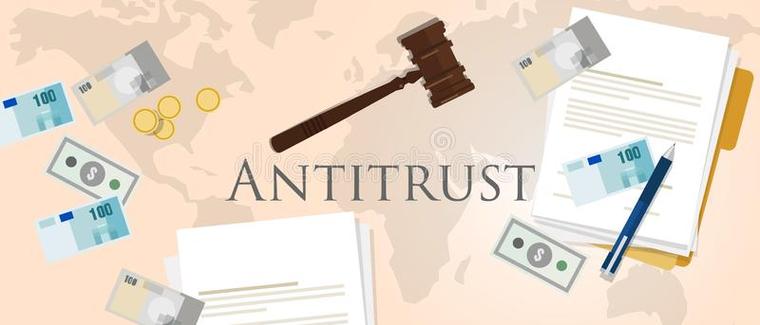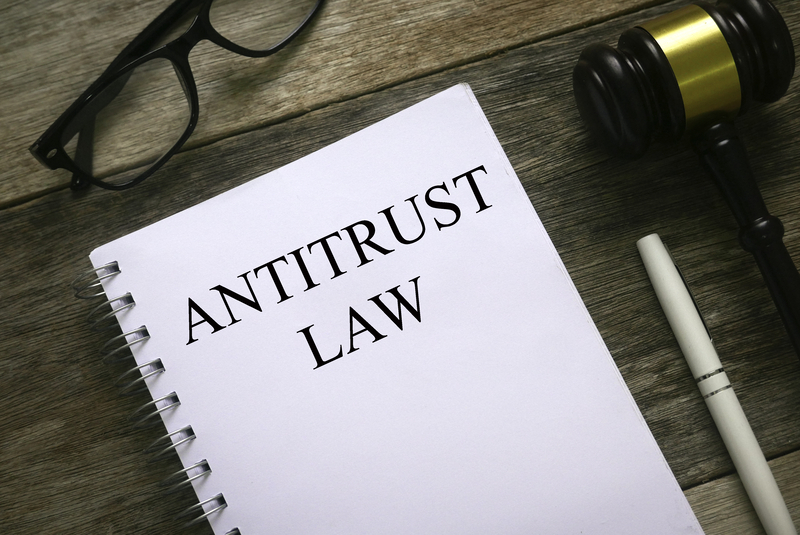
The potential investigations are welcomed by some consumer advocates, who say big technology companies stifle competition and maintain a lot of sway over speech and commerce.
However, some legal experts said the investigations may not result in major reforms, noting that U.S. law makes it tough to prove an antitrust violation.
The following answers some questions regarding the fundamentals of U.S. antitrust law and what regulators will concentrate on:
What are antitrust laws?
Antitrust legislation seeks to promote fair competition.
ADVERTISEMENT
Legislation from 1914, the Clayton Act, lets the authorities block mergers that could harm consumers.
The Sherman Act, passed in 1890, prohibits price-fixing conspiracies and other agreements that restrain competition.
The Sherman Act also lays out rules regarding monopoly power. It's these laws that the Justice Department and the FTC would probably concentrate on if they commence investigations of the tech providers, legal experts said.
Why would Google, Facebook, Amazon, and Apple face evaluation?
The Justice Department's attention is predicted to be on allegations that Google favors its products in search results and abuses its clout in the online advertising market, though it's expected to look at all the company's, sources told Reuters.
It's not understood what aspects of Amazon, Facebook, and Apple might be researched.
Google has said that changes to its search algorithms are made with consumers in mind, also that it is transparent in how it promotes its services.
ADVERTISEMENT
Facebook has been called a social media monopoly by co-founder Chris Hughes, who said in a New York Times op-ed that it should be made to sell off subsidiaries WhatsApp and Instagram.
Facebook spokesman Nick Clegg, in his op-ed, said, "In this competitive environment, it is hard to maintain the claim that Facebook is a monopoly."
Clegg wrote that Facebook is accountable for the type of rapid, consumer-friendly innovation antitrust law is supposed to encourage.
In the USA, half of all online shopping transactions occur on Amazon, providing the eCommerce company sway over retailers that use its platforms.
But in a 2018 letter to shareholders, Chief Executive Officer Jeff Bezos said: "Amazon remains a small player in global retail" because nearly all commerce still happens offline.
Finally, some software developers argue Apple has a monopoly on its app marketplace, also uses this power to demand hefty commissions and engage in other anticompetitive practices.
Apple Chief Executive Officer Tim Cook told CBS News in an interview that aired on Tuesday that Apple doesn't have a dominant position in any market.
What would the U.S. government need to prove to bring a case against the technology businesses?
FILE PHOTO: The logos of Amazon, Apple, Facebook, and Google at a composite photograph from Reuters documents. REUTERS
it's hard to demonstrate a breach of U.S. antitrust law, legal specialists said.
It is not enough for regulators to establish that a firm has monopoly power. They have to also show anticompetitive conduct - an abuse of the dominant position aimed at bypassing reasonable competition.
"You can find a monopoly just by being a good competitor and that's fine," said Chris Sagers, a professor of antitrust law at Cleveland State University.
Under current precedent, the Department of Justice and the FTC also need to show that consumers are being harmed, something that in recent decades has generally been measured by whether costs are going up and innovation is slowing down.
Using these metrics, it might be hard to verify that technology companies, which don't charge money for lots of their services, are hurting consumers, some legal specialists said.
But Charlotte Slaiman, an antitrust lawyer with consumer rights group Public Knowledge, said there is an increasing consensus among economists and the public that it is misleading to call services like Google and Facebook-free.
"What's going on is that customers are bartering with their data in exchange for a service," Slaiman explained.
In 2013, the FTC shut an investigation into Google's research practices. The bureau said, while Google's changes to the way it exhibited search results likely contested some competitions, there was"ample evidence" that Google was trying to improve user experience.

The FTC and Justice Department can both file civil suits in federal court and request judges to dictate changes to an organization's business model.
The Justice Department also can bring criminal antitrust cases, but these prosecutions normally relate to cartels and price-fixing, making charges against big technology companies unlikely.
The possible investigations are welcomed by some consumer advocates, who say big technology companies stifle competition and hold a lot of sway over speech and trade.
However, some legal experts said the investigations might not lead to major reforms, noting that U.S. law makes it tough to establish an antitrust violation.
These answers some questions about the Fundamentals of U.S. antitrust law and what labs will concentrate on:
Which is antitrust legislation for?
Antitrust legislation seeks to promote fair competition.
Legislation from 1914, the Clayton Act, allows the government block mergers that would hurt consumers. It's these laws which the Justice Department and the FTC would probably focus on should they commence investigations of the technology providers, legal specialists said.
Why would Google, Facebook, Amazon, and Apple face evaluation?
The Justice Department's focus is expected to be about allegations that Google favors its products in search results and abuses its clout in the internet advertising market, although it is expected to look at all the organization's businesses, sources told Reuters.
It is not known what facets of Amazon, Facebook, and Apple could be researched.
Google has said that modifications to its search algorithms are made with consumers in mind and that it is transparent in the way that it promotes its services.
Facebook has been known as a social media monopoly by co-founder Chris Hughes, who stated in a New York Times op-ed which it needs to be made to sell off subsidiaries WhatsApp and Instagram.
Facebook spokesman Nick Clegg, in his very own op-ed, said, "In this competitive environment, it is hard to maintain the claim that Facebook is a monopoly."
Clegg wrote that Facebook is responsible for the sort of rapid, consumer-friendly innovation antitrust law is supposed to encourage.
In the United States, half of all online shopping transactions occur on Amazon, giving the eCommerce company sway over merchants using its platforms.
However, in a 2018 letter to investors, Chief Executive Officer Jeff Bezos said: "Amazon remains a tiny player in global retail" because nearly all commerce still occurs offline.
Ultimately, some software developers assert Apple has a monopoly on its app market and uses this power to require hefty commissions and engage in other anticompetitive practices.
What will the U.S. government need to prove to bring a case against the technology businesses?
It's difficult to demonstrate a violation of U.S. antitrust law, legal specialists said.
It's not enough for authorities to establish that a firm has monopoly power. They must also show anticompetitive behavior - an abuse of the dominant position geared toward bypassing fair competition.
"You can get a monopoly by simply being a good competitor and that's fine," explained Chris Sagers, a professor of antitrust law at Cleveland State University.
Under current precedent, the Department of Justice and the FTC also need to show that customers are being harmed, something which in recent decades has generally been measured by whether prices are going up and innovation is slowing.
Using these metrics, it might be difficult to verify that technology businesses, which do not charge money for lots of their solutions, are hurting consumers, some legal experts said.
But Charlotte Slaiman, an antitrust attorney with consumer rights group Public Knowledge, said that there is an increasing consensus among economists and the public that it is misleading to telephone services such as Google and Facebook-free.
"What's going on is that customers are bartering with their data in exchange for a service," Slaiman said.
In 2013, the FTC shut an investigation into Google's search practices. The agency said, while Google's changes to the way it displayed search results probably harmed some rivals, there was"considerable evidence" that Google was hoping to increase user experience.
The FTC and Justice Department can both file civil suits in federal court and ask applicants to dictate changes to a company's business model.
The Justice Department can also attract criminal antitrust cases, but those prosecutions normally relate to cartels and price-fixing, making charges against large technology companies unlikely.
